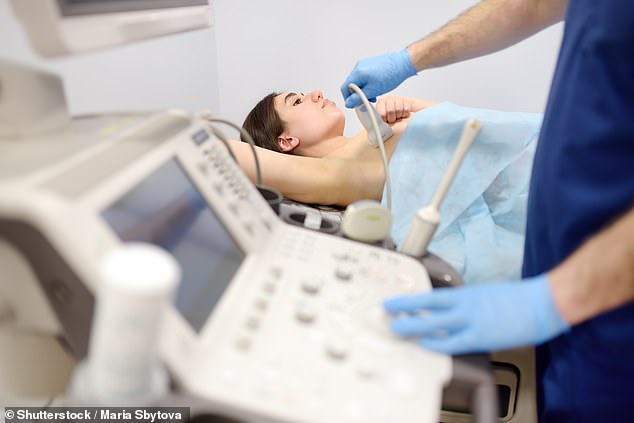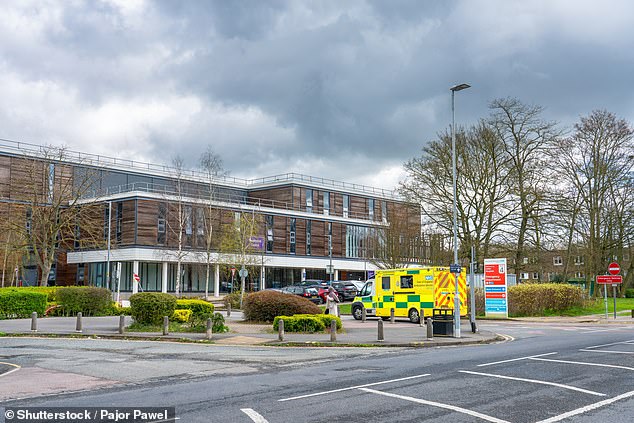Hundreds of thousands of women will be screened for breast cancer using AI as part ‘world-leading’ plans unveiled today.
Almost 700,000 patients will be asked to participate in the project which is hoped will ‘spark a revolution in cancer care’ and transform future breast cancer screening.
For the first time, AI will replace one of the two doctors currently used to check mammogram results for cancer – potentially speeding up and boosting detection rates.
Health leaders hope this will also help to slash waiting lists by freeing up radiologists to work elsewhere in the NHS.
Women who are already booked in for routine NHS screenings will be asked to take part in the £11 million Early Detection using Information Technology in Health (Edith) trial, starting later this year.
They will be invited to 30 testing sites across the country, which will deliver various different artificial intelligence technologies.
The data will be assessed to find the most effective, with a full national rollout expected if successful.
Professor Lucy Chappell, chief executive of the National Institute for Health and Care Research (NIHR), said AI had the potential to ‘save lives while reducing the burden on the NHS.’


She said: ‘This landmark trial could lead to a significant step forward in the early detection of breast cancer, offering women faster, more accurate diagnoses when it matters most.’
It comes after a series of smaller trials found AI was potentially better at diagnosing breast cancer from mammograms than hospital doctors.
Around 55,000 women and 400 men are diagnosed with breast cancer every year in the UK, making it second only to prostate cancer in numbers.
Women are automatically invited for screening between the ages of 50 and 53, and then every three years until they turn 71.
X-rays, known as mammograms, are taken to look for cancers that are too small to see or feel, which are reviewed by two radiologists as standard to ensure accuracy.
The Society of Radiographers has previously warned women are receiving late breast cancer diagnoses and experiencing treatment delays due to a shortage of staff who can deliver screening.
Experts hope using AI will enable one to complete the process, stopping delays and reducing the reliance on these specialists.
Dr Katharine Halliday, president of the Royal College of Radiologists, said AI has ‘immense potential’ and will play a ‘vital role’ in meeting increasing demand across diagnostics, cancer care and the NHS as a whole.

She said: ‘Given the volume and complexity of breast screening, if AI is found to be safe and effective it could make a major impact on radiology.
‘However, this is a rigorous study that will take time to yield results. With a projected 40 per cent shortfall in consultant radiologists by 2028, the need to build radiology capacity remains urgent.’
The launch coincides with the government’s call for evidence to help shape a national cancer plan which will outline actions to transform how the disease is treated in a bid to reduce deaths.
Health Secretary Wes Streeting said: ‘As a cancer survivor, I feel like one of the lucky ones.
‘With record numbers of people diagnosed with cancer, and Lord Darzi finding that cancer survival is worse in this country than our peers, I know that urgent action is needed to save lives and improve patient care.
‘That’s why for World Cancer Day, I am committed to publishing a dedicated National Cancer Plan this year, to unleash Britain’s potential as a world-leader in saving lives from this deadly disease and make the NHS fit for the future through our Plan for Change.’

